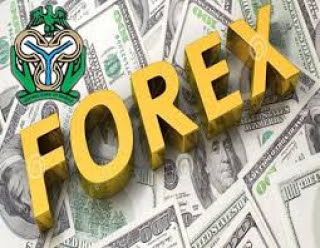Nigeria’s currency – the Naira – on Tuesday significantly appreciated in exchange rate against the US dollar at the parallel market to trade at an average rate of N770/$1, representing a 1.28% gain during the day’s trading session.
The Naira has since May 17 depreciated in value against the greenback and last Friday traded at N780/$1, indicating a 1.96% loss when compared with the N765/$1 it traded the previous day.
The last Friday’s exchange rate of the Naira against the US dollar represented the worst depreciation it had recorded since trading commenced in the parallel market this year and since November 21, 2022, when it depreciated to the same N780/$1.
Some Bureau De Change (BDC) dealers at the black market have for some time now been attributing the unimpressive performance of the currency to higher demand for the US dollar amid supply shortfall as business activities remained low nationwide.
Similarly, during the day’s trading, the Naira dipped in value in its exchange rate against the Euros on Tuesday, depreciating by 0.37%, to settle at an average rate of N818/€1, compared to N815/€1 it exchanged at last Friday.
But then, the local currency appreciated against the British Pound Sterling by 0.52% on Tuesday, to trade at an average rate of N955/£1, compared to its N960/£1 last Friday’s trading session.
According to data sourced from the Peer-to-Peer (P-2-P) Exchange platform, the local currency also gained at the cryptocurrency Peer-to-Peer (P-2-P) Exchange market, to trade at a minimum of N760.90/$1, implying a 1.50% appreciation from the N772.50/$1 it exchanged at last Friday.
As part of its monetary measures to achieve a stable exchange rate for the Naira against the American greenback and other foreign currencies, the Central Bank of Nigeria (CBN) has, over the past years, been supplying dollars to FX traders at both the official window and parallel market..
However, the apex bank suspended FX supply to Bureaux De Change (BDC) dealers early in March 2020 following its findings that some FX dealers in the black market were engaging in FX round-tripping, thereby undermining its efforts aimed at stabilizing the exchange rate of the local currency. It has not reversed its decision since then.
Some analysts have argued that the apex bank’s sustained FX interventions at the Importer and Exporter (I&E) window are partly responsible for the country’s low foreign reserves over the past months.






